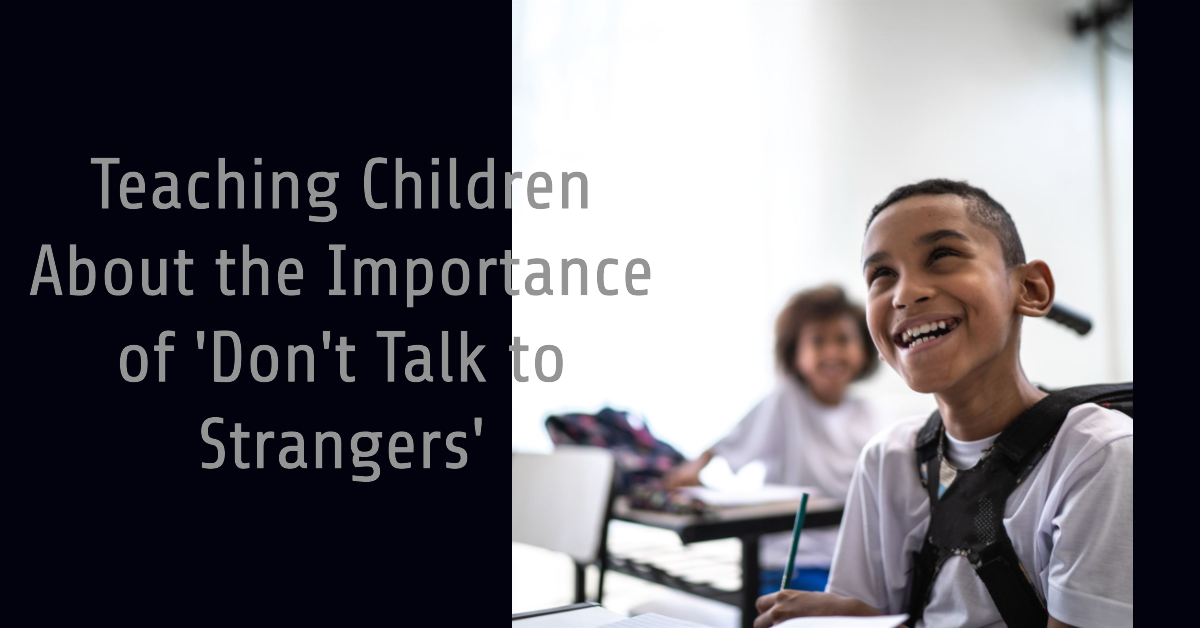In our ever-connected world, it’s crucial to equip children with the knowledge and skills they need to stay safe. One essential lesson is teaching them about interacting with strangers.
By understanding the concept of “Don’t Talk to Strangers,” children can navigate the world more confidently and protect themselves from potential dangers.
In this blog, we will explore the topic “Don’t Talk to Strangers” and delve into the strategies and guidelines to help children stay safe.
Identifying Strangers
The first step in teaching children about stranger safety is helping them differentiate between strangers and familiar people.
It’s essential to explain that strangers are individuals they don’t know personally. Children should understand that strangers can exist in various contexts, such as parks, schools, or even online platforms.
By recognizing strangers, children can develop a heightened sense of caution.
Potential Dangers of Talking to Strangers
Children need to grasp the risks associated with engaging in conversations with strangers.
Stories and real-life examples can be powerful tools in illustrating the potential harm that may arise from such interactions.
By understanding these dangers, children become more vigilant and less likely to fall victim to manipulation or exploitation.
Strategies for Avoiding Stranger Interaction
Empowering children with strategies to avoid interacting with strangers is crucial. Teaching them about personal boundaries and the importance of saying “no” assertively can help build their confidence.
Role-playing scenarios can be an effective method to practice these skills. By rehearsing potential encounters, children become better equipped to handle real-life situations.
Safe Communication Guidelines
While it’s important to teach children not to talk to strangers, it is equally vital to emphasize the need for communication with trusted adults.
Children should know who the trusted adults in their lives are, such as parents, teachers, or police officers.
Encouraging them to seek help and report any concerning encounters fosters an environment of support and protection.
Online Safety and Strangers
In today’s digital age, online safety is a crucial aspect of stranger awareness. Children should be made aware of the risks associated with online interactions with strangers.
Educating them about the potential dangers of social media, online gaming platforms, and chat rooms is vital.
It’s important to provide guidelines for safe online behavior, including the importance of privacy settings and not sharing personal information.
Handling Unwanted Approaches
Unfortunately, some strangers may persist or make unwanted advances toward children.
Teaching children how to handle such situations is essential. Empowering children to trust their instincts and remove themselves from uncomfortable encounters is crucial.
They should understand the importance of seeking help from trusted adults whenever necessary.
Reviewing Safety Rules
Regularly reinforcing safety rules is paramount. Summarizing the key points covered in the cluster helps children retain the information.
Encourage open discussions and maintain an ongoing dialogue to ensure children understand and internalize the importance of “Don’t Talk to Strangers” as a lifelong principle.
Conclusion
Teaching children about the significance of “Don’t Talk to Strangers” equips them with valuable skills to navigate encounters safely. By educating them about identifying strangers, understanding potential dangers, and employing strategies to avoid interaction, children become more prepared and confident. Emphasizing safe communication, online safety, and handling unwanted approaches further enhances their security. By reinforcing these rules and maintaining an open dialogue, we empower children to take charge of their own well-being, fostering a secure and protected environment for their growth.

